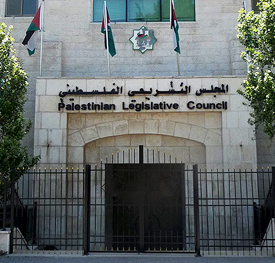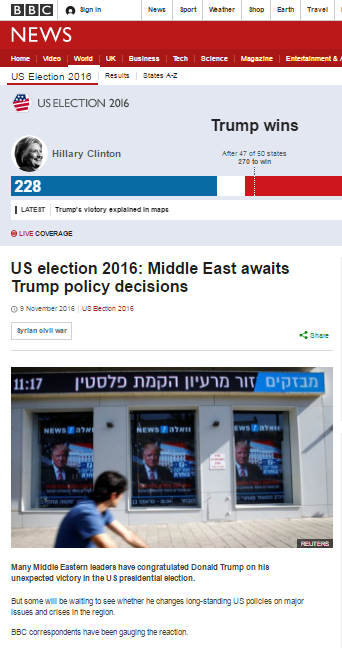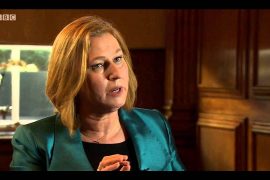One might have thought that the resignation of a prime minister and his entire government would have merited at least a few words on the BBC News website, regardless of the location.
However, when the Palestinian Authority prime minister handed in his resignation on January 29th, BBC audiences saw no coverage whatsoever of that story.
“PA Prime Minister Rami Hamdallah and his government tendered their resignations earlier Tuesday, marking the end of a failed unity bid with rival Hamas.
[PA president] Abbas accepted the resignations but assigned Hamdallah and his fellow ministers the task of maintaining the PA government’s operations until the formation of a new one, the official PA news site Wafa reported.
The government’s decision to resign came two days after the Fatah Central Committee recommended the formation of a government made up of representatives of factions in the Palestine Liberation Organization and independent personalities, leaving out Hamas, a terror group that is the de facto ruler of the Gaza Strip. […]
Fatah Central Committee Member Azzam al-Ahmad said on Sunday that the Palestinians planned to form a new government in response to Hamas not handing over the Gaza Strip to the PA.”
However, Khaled Abu Toameh reports that Fatah’s plans for a PLO government have already run into choppy waters.
“Two PLO groups announced that they will not participate in a new Palestinian Authority government because it will deepen divisions among Palestinians, consolidating the split between the West Bank and the Gaza Strip. […]
…the PLO’s Popular Front for the Liberation of Palestine (PFLP) and the Democratic Front for the Liberation of Palestine (DFLP) said that they will not be part of a government that “solidifies divisions among” the Palestinians.
Miriam Abu Dakka, a senior PFLP official, said that the PLO, and not Abbas’s ruling Fatah faction, was the only party authorized to make a decision on the formation of a new Palestinian government. […]
Another PFLP official, Kayed al-Ghul, pointed out that his group has refused to participate in all Palestinian governments that were established after the signing of the Oslo Accords between Israel and the PLO in 1993. The PFLP is opposed to the Oslo Accords. […]
Earlier, the DFLP, which is also opposed to the Oslo Accords, said it too would not participate in a new government and called for launching dialogue among Palestinian factions to achieve “national unity.””
Meanwhile, The BBC’s ‘Palestinian territories’ profile (last updated in December 2017) and timeline still tell audiences that in October 2017 “a government of national unity assumed control of Gaza public institutions” and “Hamas lets the Ramallah-based unity government take over public institutions in Gaza as part of a reconciliation process between the two rival administrations”, despite the fact that those statements are patently inaccurate.
Related Articles:
The BBC’s redundant ‘Palestinian unity government’ claim
BBC News continues to side-step internal Palestinian politics




